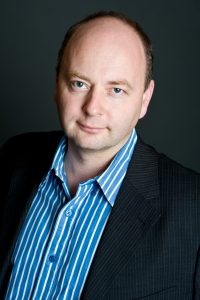How to counter antisemitic and racist movements
Where do we go from here? USC experts can sift through the heated rhetoric of the recent marches in Charlottesville, Philadelphia, Los Angeles, Boston and Atlanta to help better understand what happened, why it happened, and more importantly, how to counter acts of hatred in the future. The university is home to USC Shoah Foundation, whose 55,000 testimonies of survivors and witnesses to the Holocaust and other genocides provide a compelling voice for education and action.
Contact: Emily Gersema, (213) 361-6730 or gersema@usc.edu; Josh Grossberg, (213) 740-6065 or josh.grossberg@usc.edu
“We are witnessing a marriage wherein Nazi ideology and white supremacy join together to draw from the dark historical legacies of the Holocaust and slavery and to espouse their racism and antisemitism in broad daylight. This confluence of hateful ideas is a powder keg that must be defused. This is not about party politics but about the values of our country. We have 55,000 people who have testified about the short fuse from hatred to genocide. It’s time to listen to them.”
Stephen D. Smith can discuss the history of hate and how it impacts the world we live in today. A theologian by training, Smith has a particular interest in the impact of the Holocaust on religious and philosophical thought and practice. He is executive director of USC Shoah Foundation, holds the UNESCO Chair on Genocide Education, and is an adjunct professor of religion at the USC Dornsife College.
Contact: (213) 740-6003 or smithsd@usc.edu
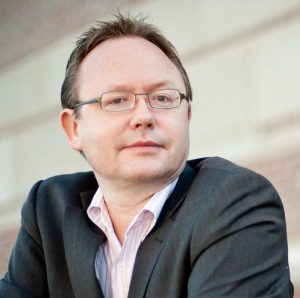 Connecting the past to the present
Connecting the past to the present
“We need only look to history to see where white supremacist, neo-Nazi rallies like the ones in Charlottesville last weekend can lead. When such violent displays of radical racism, antisemitism and bigotry are not clearly condemned by the president and the government, it brings a country one step closer toward state-level acceptance of racial discrimination, which can end in persecution and genocide. If we are to prevent another catastrophic event like the Holocaust, it is imperative that we recognize the warning signs and resist these would-be perpetrators with all available means that are at the disposal of the state and the civil society.”
Wolf Gruner is a historian and a specialist for research on the Holocaust and German-Jewish history, about which he has published 11 books and more than 60 articles. He also is an expert on the comparative history of mass violence and its resistance on a global scale, as well as racial and state discrimination against indigenous populations, especially in Latin America. Gruner is the founding director of USC Shoah Foundation Center for Advanced Genocide Research, a professor of history and the Shapell-Guerin Chair in Jewish Studies at USC Dornsife College.
Contact: (213) 740-1668 or gruner@usc.edu
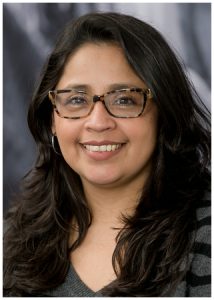 Teach lessons of history to the younger generation
Teach lessons of history to the younger generation
“We cannot expect our students to learn the lessons of history or be responsible participants in civil society if we do not adequately prepare our educators to effectively teach these critical topics in the classroom. Now more than ever, teachers need comprehensive educational resources that will inform, engage and inspire the next generation to actively reject hatred in all its forms.”
Claudia Ramirez Wiedeman is an expert in teaching young people the importance of empathy and diversity, teacher preparation in urban education contexts, use of audiovisual testimony of witnesses to genocide to educate students, and the intersection of digital media and education. She is the director of education at USC Shoah Foundation. Her specialties include K-12 teacher education and professional development, literacy and second language acquisition, curriculum assessment and design, trans-media literacy, and qualitative research methods.
Contact: (213) 821-5299 or crwiedem@usc.edu
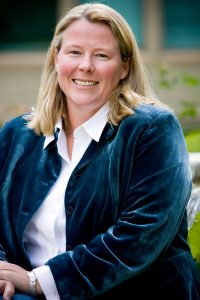 Resisting intolerance starts in the classroom
Resisting intolerance starts in the classroom
“The solutions to many of society’s problems can start to be developed in the classroom. It is imperative that we arm our young people with the skills, knowledge and dispositions to resist the kind of bigotry we see all around us today. We can do that with thoughtful, evidence-based, theoretically sound educational resources.”
Kori Street is focused on the preservation and educational use of Holocaust survivor testimonies, which has resulted in work with national and international committees on Holocaust education, remembrance, and research. Continuing the focus on education, her other areas of research are problem-based learning and the integration of information literacy into the classroom. She is the senior director of programs and operations at USC Shoah Foundation.
Contact: (213) 740-2516 or kestreet@dornsife.usc.edu
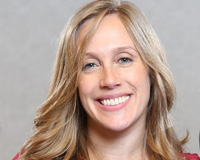 Empower people to speak against bigotry
Empower people to speak against bigotry
“In the wake of the horrific events in Charlottesville, students of all ages have spoken out, declaring that the hatred spewed by a small group of bigots, neo-Nazis, and white supremacist extremists does not represent them or their generation’s values. As they pursue their education and prepare to take their place as the next generation of leaders, we must empower them to stand up for their beliefs, inspire their peers to take action, and effect meaningful change in the world.”
Sara Brown is an expert on the history of the Holocaust, comparative genocide studies, and gender and conflict. She is a postdoctoral fellow at USC Shoah Foundation. Brown’s recent book, Gender and the Genocide in Rwanda: Women as Rescuers and Perpetrators, explores the stories of women who exercised agency during the genocide in Rwanda.
Contact: sarabrow@usc.edu
[Image: Thousands of protestors participated in the “Philly is Charlottesville” march, in Philadelphia, on Aug. 16, 2017. Demonstrations have been held following the clashes between white supremacists and counter-protestors in Charlottesville, Va., the weekend of Aug. 12. (Photo by Bastiaan Slabbers/NurPhoto/Sipa USA)(Sipa via AP Images)]
# # #

